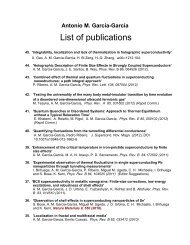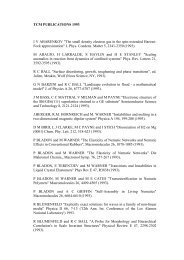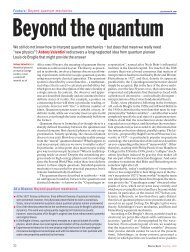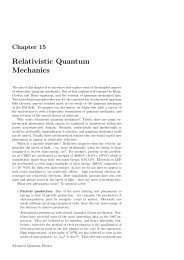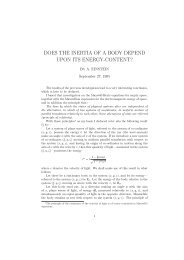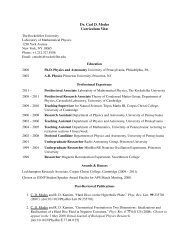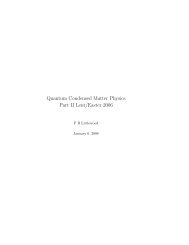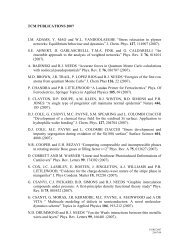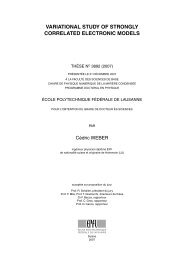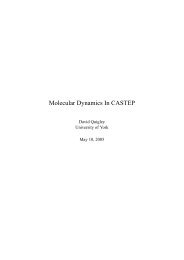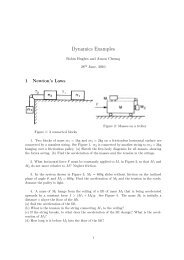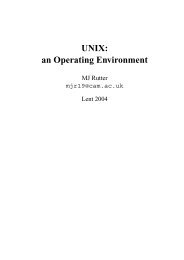Geometry Optimisation with CASTEP
Geometry Optimisation with CASTEP
Geometry Optimisation with CASTEP
You also want an ePaper? Increase the reach of your titles
YUMPU automatically turns print PDFs into web optimized ePapers that Google loves.
depend on the nature of the system and the method used to treat any metallic species in the system<br />
metals_method : value<br />
For insulators no special treatment is required. Including a parameter<br />
fix_occupancy : true<br />
defines the system as an insulator and metals method will be set to a default value of NONE.<br />
If the user defines<br />
fix_occupancy : false<br />
then by default a choice will be made by <strong>CASTEP</strong> for<br />
metals_method : EDFT<br />
Now <strong>with</strong> Ensemble Density Functional Theory (EDFT) the calculation is more likely to converge than<br />
<strong>with</strong> the alternative method Density Mixing (DM) and will usually require fewer SCF cycles to minimise<br />
the electronic structure for a given ionic structure. However, DM is much faster per SCF cycle than<br />
EDFT. For systems containing metallic atoms it is advisable to first try DM <strong>with</strong><br />
max_scf_cycles : 50<br />
and if this is failing to converge switch to EDFT.<br />
The electronic minimisation is considered to have converged when the change in the total energy from<br />
one iteration to the next remains below some tolerance value per atom for a few scf steps. The default<br />
value of the parameter<br />
elec_energy_tol : value<br />
is<br />
eV per atom and is usually suitable but it might be suitable to reduce the strictness of this<br />
tolerance limit if a calculation is consistently failing to converge. The number of iterations for which the<br />
change in the total energy must remain below elec_energy_tol is the convergence window and it<br />
can be specified by.<br />
elec_convergence_win



